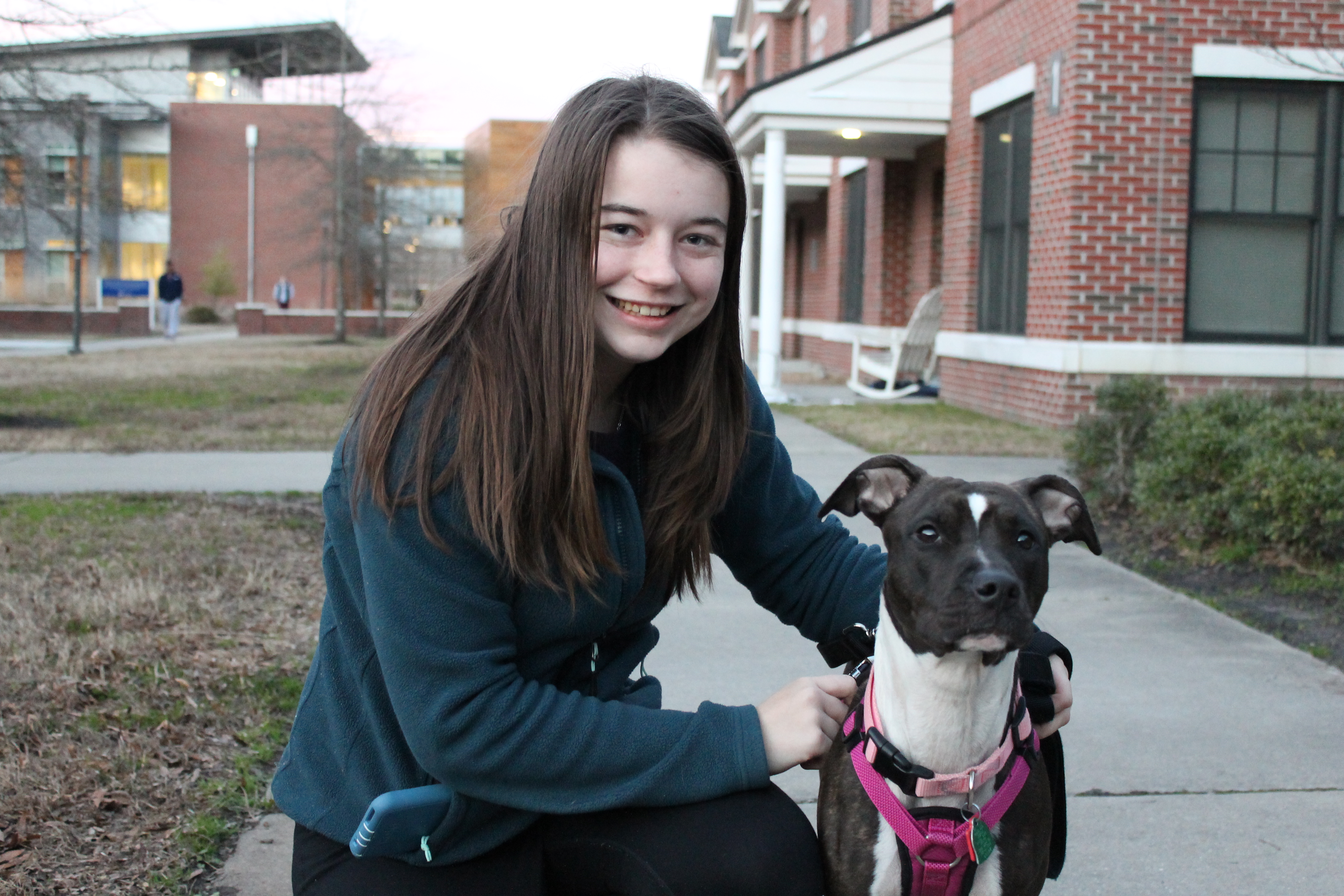There has been a rise of unregistered animals on Virginia Wesleyan University campus, and these violations can cost students their housing selection. Students can register either service animals or companion animals. Recently, there has been notes posted around campus reminding students that if they have a pet on campus to make sure that they are registered and are allowed to be here. Residence Life is starting to crack down on these violations.
Virginia Wesleyan has had the same policy regarding animals for the past four to five years. Residence life has been finding these animals through numerous ways on campus. There are two different types of ways of getting an animal registered on campus. The first is as a service animal, which are trained to perform a certain job or task to someone that may need it. This refers to students who have a need for their animal because they have an certain impairment that the animal has been taught to help with. The second type of animals allowed on campus are companion animals, which are defined by the the American Society for the Prevention of Cruelty to Animals as “domesticated or domestic-bred animals whose physical, emotional, behavioral and social needs can be readily met as companions in the home, or in close daily relationship with humans.”
The increase of unregistered animals violations on campus could lead to severe consequences. “Our standard moving forward, if you are in violation of the unregistered animal policy then the level of probation that you go on is the disciplinary probation and that is our highest level of probation here at the institution. Ultimately it may result in you losing your housing selection opportunity for the upcoming year,” Assistant Vice President for Student Affairs Jason Seward said. “We have a process if a student has a real need to have a registered companion animal on campus then we encourage them to visit the student handbook and to understand that policy and go through the proper channels.” If a student is caught with an unregistered animal it could cost them an opportunity in the future of getting a companion animal.
Numerous colleges across the United States have been seeing a rise of animals on campus. There is not just one cause from the recent increase. Reasons range from the increasing stress and anxiety that students are going through to many colleges allowing more and more students the ability to have pets on campus and in their dorms.
There are many colleges that are becoming pet-friendly, though there are some that still do not allow animals to live on campus. Some colleges allow students to bring a pet on campus after one year. Some even allow students a pet after one semester. Unfortunately, there are some risks that are being carried with bringing an animal on campus that is unregistered. “There are multiple reasons why institutions restrict animals on campus everything from allergies of other students that from minimizing wear-and-tear on the building to the impact that the animal could have,” Director of Residence Life David Stuebing said. There is a defined process for those students who wish to bring an animal onto campus legally. “For those that have a legitimate need, the process is actually outlined in the student handbook under the accommodations,” Stuebing said. If a student does register either a service animal or companion animal for the most part they are allowed to stay on campus for the rest of the student’s time here at Virginia Wesleyan.
When a student brings a companion animal on campus the goal of the school is to prepare them for life outside of college and the counselling service helps with that. “For the emotional support animals, the way I phrase it to students is our hope is that we can all students be ready for the challenges that they’re going to face post-college,” Stuebing said. Although many people believe that there is little harm in having a pet, it can have limitations. “Needing an emotional support animal may limit where they can live or what they could do, and so ideally, in cooperation with counseling office, with just our various support resources, we could help them find tools in ways of handling anxiety or stresses or things that where they might not need an animal that it is a nice thing to have, but it is no longer required,” Stuebing said. The university is making a conscious effort to help the students that have anxiety.
Virginia Wesleyan is staying a pet-friendly college even though there is more of a watch over unregistered animals on campus.
Nicholas Mundy
namundy@vwu.edu

